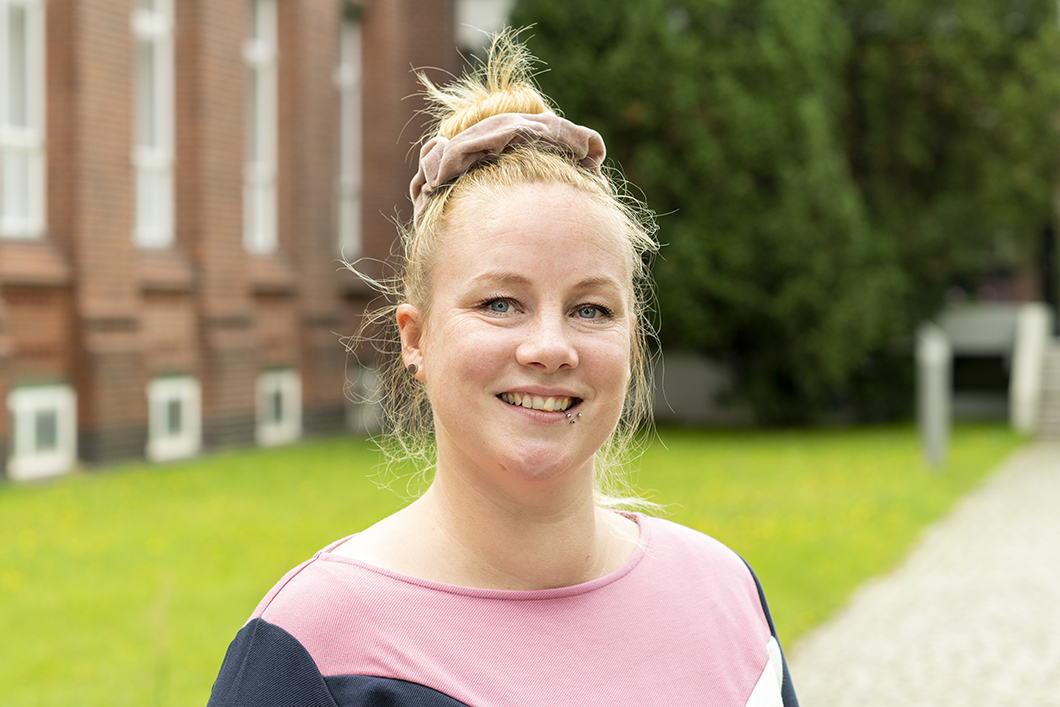
Dr. Wencke Schulz, Materialography, Fractography and Ageing of Engineered Materials Division
Source: BAM
Interview series "Introducing People@BAM"
Dr. Wencke Schulz, Materialography, Fractography and Ageing of Engineered Materials Division
Wencke, tell us a little bit about yourself. What did you do in "your life before BAM?
I was born in Döbeln, a small town in Saxony, Germany. After school, I studied mineralogy at Universität Leipzig. I was particularly fascinated by the seminars, lectures, and field trips. The highlights were the pyrite cubes I found by my own, the Maramures diamonds and a great quartz druse. It is unbelievable in which geometrical forms minerals can grow. This was the reason I was captivated by the world of materials and wanted to get deeper into the matter. In my diploma thesis I even got the opportunity to take a closer look at a meteorite by means of electron microscopy. It was so exciting for me to examine something that was not of this world.
What inspired you to pursue a career in science? Do you have any role models and, if so, which ones?
As a child, I went hiking a lot with my parents in the Elbe Sandstone Mountains. The fascination of how such formations are created has always accompanied me. Thus, already as a child I made the decision that I must become a scientist to find out why things are the way they are.
What does your research focus on, and what excites you most about this topic?
I deal exclusively with novel metallic materials (high and medium entropy alloys) and their aging behavior in challenging environments. Especially corrosion at high temperatures and in aggressive gases. There are simply no limits to this field. It is always a challenge to discover new mechanisms and to understand them. Because understanding the mechanism of one system doesn't mean you've solved the mechanisms for all systems. My second focus, corrosion protection by alumina, also offers new challenges. And that's what particularly appeals to me about this topic, which is why I haven't been able to get away from it.
Why research at BAM? What do you like most about your work here?
BAM is an institution that offers many opportunities especially in the field of corrosion. The excellent experimental infrastructure at BAM allows you to gain a ton of information even from the smallest of samples.
I especially like the interdisciplinary research and thus the access to completely different fields. You get a lot of support, input, and exchange, which leads to new ideas and research questions that want to be answered.
Have there been any obstacles or challenges in your career so far? And if so, how did you overcome them?
Since April 2021, I´m the leader of a Q-Team (research-based learning and digital teaching) in the frame of the bologna.lab initiative at Humboldt Universität zu Berlin. The biggest challenge in the last few months has been teaching students in a virtual room for the first time and balancing this with practical education. Due to the wide variety of tools for online teaching, we overcame this barrier well and ended up with a nice final product (a scientific poster).
What do you like to do when you’re not doing research?
I've always loved swimming and doing a lot of music (singing).
If you should describe your job at BAM in one sentence – what would that be?
The combination of science, teaching and project management.


